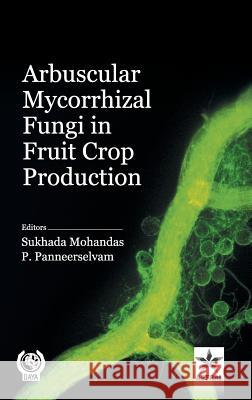Arbuscular Mycorrhizal Fungi in Fruit Crop Production » książka
Arbuscular Mycorrhizal Fungi in Fruit Crop Production
ISBN-13: 9789351306863 / Angielski / Twarda / 2016 / 412 str.
The book provides an insight into the usage of mycorrhizal technology in different fruit crops in the world, its benefits in nutrient cycling/management and in biotic and abiotic stress management and the prospects of its application in nurseries and field crop. It provides information on how in horticulture practices it is important to select a functionally compatible host/fungus/substrate combination for the fruit crop-AMF symbiosis to be successful, and how an early establishment of the AMF status, after sowing or transplanting is a key factor to improve plant performance. AMF technology is most feasible for fruit crops which involve a transplant stage, where plants are produced in nursery beds, containers or by tissue culture which can be effectively inoculated at an early stage itself. The interactions between AMF and rhizobacteria could be further explored for getting maximum benefit in horticultural practices. Finally it deals with inoculum production techniques for the proper application of AM biotechnology in commercial horticultural plant production systems which needs to be addressed in a more professional way as AMF inocula are still commercially not available like other microbial cultures. Finally it deals with inoculum production techniques for the proper application of AM biotechnology in commercial horticultural plant production systems which needs to be addressed in a more professional way as AMF inocula are still commercially less available unlike other microbial cultures











